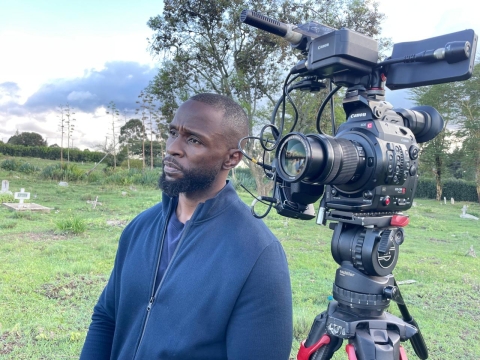
In the midst of anti-government protests that have rocked Kenya in recent weeks, authorities are targeting Africa Uncensored – the pioneering, independent news outlet co-founded by ICFJ Knight Award winner John-Allan Namu – with false and dangerous allegations.
The government announced last week they are investigating Africa Uncensored and 12 other organizations that have received funding from the Ford Foundation.
The probe was launched after Kenyan President William Ruto accused the foundation – without providing any evidence – of sponsoring those causing “violence and mayhem” in Kenya, an outrageous allegation the philanthropy has denied. Analysts have called the allegations baseless and an attempt by Ruto to blame outside influences for the sustained public opposition his government is facing.
These allegations are an attempt to silence an important independent voice. All over the world, independent journalism needs external support to resist these kinds of attacks and represent the citizens they serve.
Protestors first took to the streets in June in opposition to a proposed bill that would impose more taxes at a time of rising prices. In response, Ruto did not sign the bill and dismissed his entire cabinet, but calls for his resignation persist as the protests enter a sixth week. The Associated Press reported that at least 50 people have been killed in the protests and more than 400 injured, while hundreds have been arrested and others allegedly abducted.
The Nairobi-based Africa Uncensored is an independent, investigative news outlet dedicated to producing high-quality, in-depth journalism that holds power to account and addresses underreported issues across Africa. It was co-founded in 2015 by Namu, who was selected earlier this year by a jury of leading media professionals to win the prestigious ICFJ Knight International Journalism Award.
The attacks against Africa Uncensored are unwarranted and deeply troubling. Journalism is not a crime, but a vital public service. Namu and the entire team at Africa Uncensored, along with other journalists in Kenya, must be free to do their jobs, and press freedoms must be upheld. This is only more important in times of crisis. ICFJ stands with Africa Uncensored and all journalists in Kenya.
In a statement, Namu said: “This fight is about more than just our credibility; it is about everyone’s voices.”